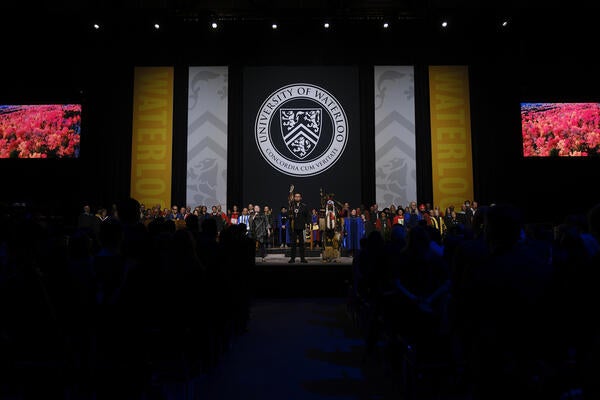
Getting girls into gaming – and math
For the last two years in a row, Waterloo students have won the Illinois-based Games4Girls competition, which has young women develop video games for girls.

For the last two years in a row, Waterloo students have won the Illinois-based Games4Girls competition, which has young women develop video games for girls.
By Staff Communications & Public Affairs Gaming for girls opens paths to math
Gaming for girls opens paths to mathYou don’t have to wander far into your local video game store to figure out who’s spending the most time at the screen: boys.
But girls? They make up only 20 per cent of frequent gamers.
Waterloo students Denise Chan and Wing Shan (Sara) Kam are aiming to change all that. The Waterloo team won the University of Illinois’ Games4Girls Competition in 2011 with Prince, an action and shooting game for middle and high school girls. The top honour pays out $2,000 plus $500 to be donated to the team’s computer science department.
Prince wasn’t the only Waterloo winner. Two other teams respectively won second place and a honourable mention – meaning in total, Waterloo took half the prizes at the competition.
“This is the second year in a row that Waterloo has triumphed at Games4Girls,” reports David R. Cheriton School of Computer Science Professor, Nancy Day. Just the year before, another team won top prize for its game, Alessa in Wonderland.
The tradition of innovation can be linked to Waterloo’s Math faculty, which has the largest concentration of mathematical and computer science talent in the world. It’s also an environment that encourages girls and women to excel in the industry – and push it in exciting new directions.
One of the winners for the 2010 competition, Shanti Mailvaganam, says developing media geared at girls isn’t all about fun and games. It’s about opening eyes to possibility.
“We’re hoping that for the girls who get to see it, Alessa in Wonderland gives them the opportunity to say, “Hey, they made something cool, maybe I can too.’”

Read more
Here are the people and events behind some of this year’s most compelling Waterloo stories

Read more
Meet five exceptional Waterloo graduate students crossing the convocation stage as Class of 2025 valedictorians

Read more
Waterloo is proud to award honorary doctorates for significant contributions in mathematics and public service
The University of Waterloo acknowledges that much of our work takes place on the traditional territory of the Neutral, Anishinaabeg, and Haudenosaunee peoples. Our main campus is situated on the Haldimand Tract, the land granted to the Six Nations that includes six miles on each side of the Grand River. Our active work toward reconciliation takes place across our campuses through research, learning, teaching, and community building, and is co-ordinated within the Office of Indigenous Relations.